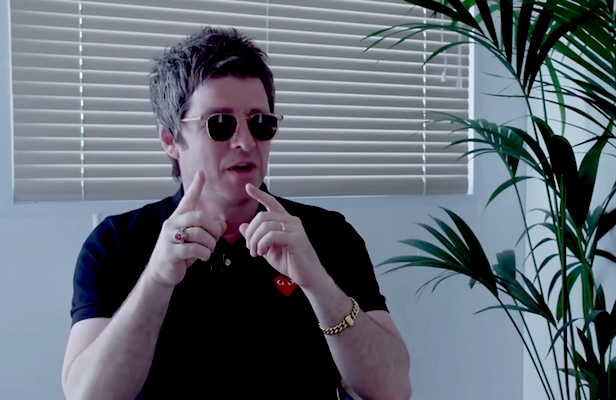The decision to change the traditional music release dates – Monday in the UK, Tuesday in the US, and Friday in Australia and Germany – was made in February of this year. Now that the official date for global music releases is tomorrow, July 10, people are just now getting their panties in a bunch. This includes Noel Gallagher, who was recently interviewed by NME on the topic.
“Whoa, whoa, whoa…says who? I run my own fucking record label. I’ll release mine on a Wednesday just to be fucking contrary,” he said, shaking his head. “Not on a Friday. No, no, no.”
When Gallagher asked the off-camera NME journalist who made this decision, we can hear, “America. Probably.” Shit NME, get your facts straight. You know what they say about assuming.
Yes, America is to blame for many of the world’s ills, but this isn’t one of them. The decision was actually made by the International Federation of the Phonographic Industry (IFPI), which represents record labels worldwide, with offices in London, Brussels, Hong Kong and Miami. The conversation to move to a global release date started a few years back, and a conference call was held by IFPI in September of 2014, with many US-based organizations voicing their opposition, from the American Association of Independent Music (A2IM) to a number of major retailers.
The initiative for a global street date came about initially as a way to fight piracy, where, for example, someone could get a hold of music on Monday in the UK and then release it worldwide through pirate networks. With music being released globally on the same day, IFPI believes this will help to combat that, “Making it less likely that consumers will go to pirate sites when they can’t get new releases in their country. This will help channel revenues back to the legitimate rights owners,” Frances Moore of IFPI London stated in February of this year. But it’s also about making things more convenient for consumers. “Music fans live in the digital world of today. Their love for new music doesn’t recognise national borders. They want music when it’s available on the internet – not when it’s ready to be released in their country. An aligned global release day puts an end to the frustration of not being able to access releases in their country when the music is available in another country.”
The latter is a valid argument. The essential piece of this global release date discussion that’s missing is distribution. There have been countless times where bands from the UK are touring the US to support an album, but if you go to the ‘buy’ link to get said album, it’s for the UK iTunes store. Fine, take me to the US iTunes store to buy the album. You know what happens then? You get the message that the album is not for sale in the US store. iTunes is not the end all for digital music purchases, but it’s a big one and sometimes it’s the only one, depending on the release. So that’s really poor business planning.
It’s unclear if this unified release date will help ease the distribution issue, but there is no doubt it will require a lot of work and adjustments, as outlined by IFPI. “Retailers, chart companies, labels and artists need to be involved. The key tasks of these working groups will include: adapting the charts to a Friday release for countries that presently have a different day; managing the process and system changes between different parties in the supply chain; marketing and branding so that there is a clear brand and consumer awareness around Global Release Day; and dealing with glitches that will inevitably arise during the process of the switchover.”
While the NME journalist was wrong in his assumption, Gallagher was pretty spot on with his in terms of who this may potentially benefit and how focus groups were used by IFPI to make this decision, “To maximise, you know, some amount of record sales. If we have it on a Friday, then by the time it gets to Monday we would have already sold a million albums, if one is Taylor Swift.”
Making his opinions known on how this will impact independent labels and artists, Beggars Group chairman Martin Mills said on Billboard, “I fear this move will also lead to a market in which the mainstream dominates, and the niche, which can be tomorrow’s mainstream, is further marginalized. I fear it will further cement the dominance of the few — and that is exactly what it is intended to do.”
True to form, Gallagher ends with a bit of poignancy, “Unfortunately, it won’t make shit albums any better, will it? They’ll still sound shit on a fucking Friday.”

